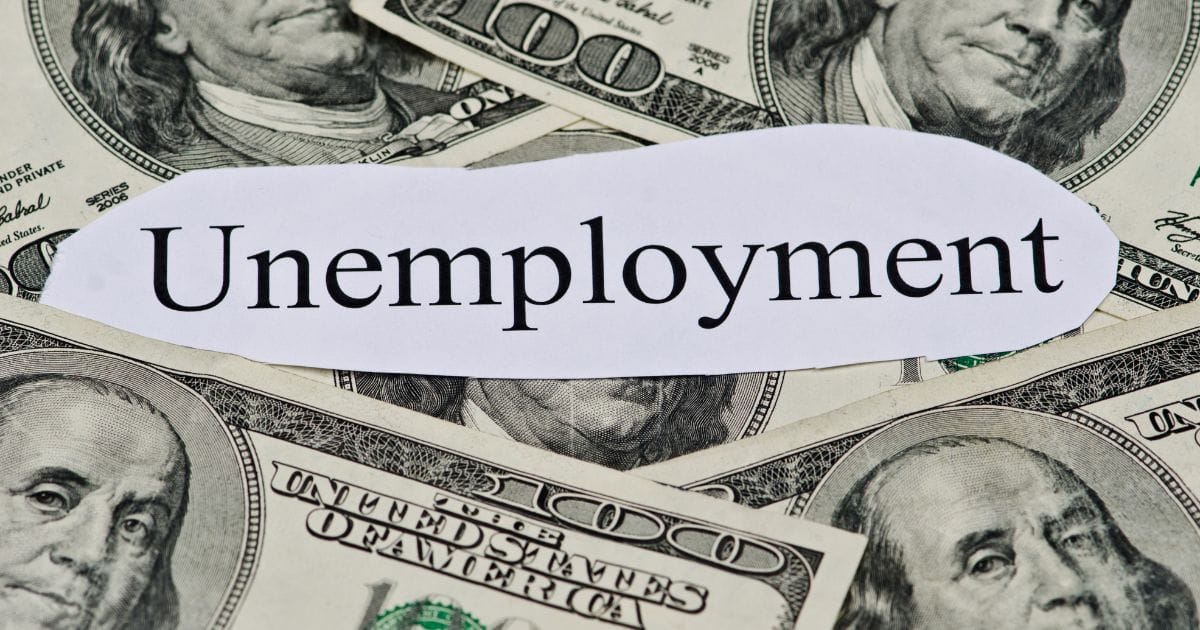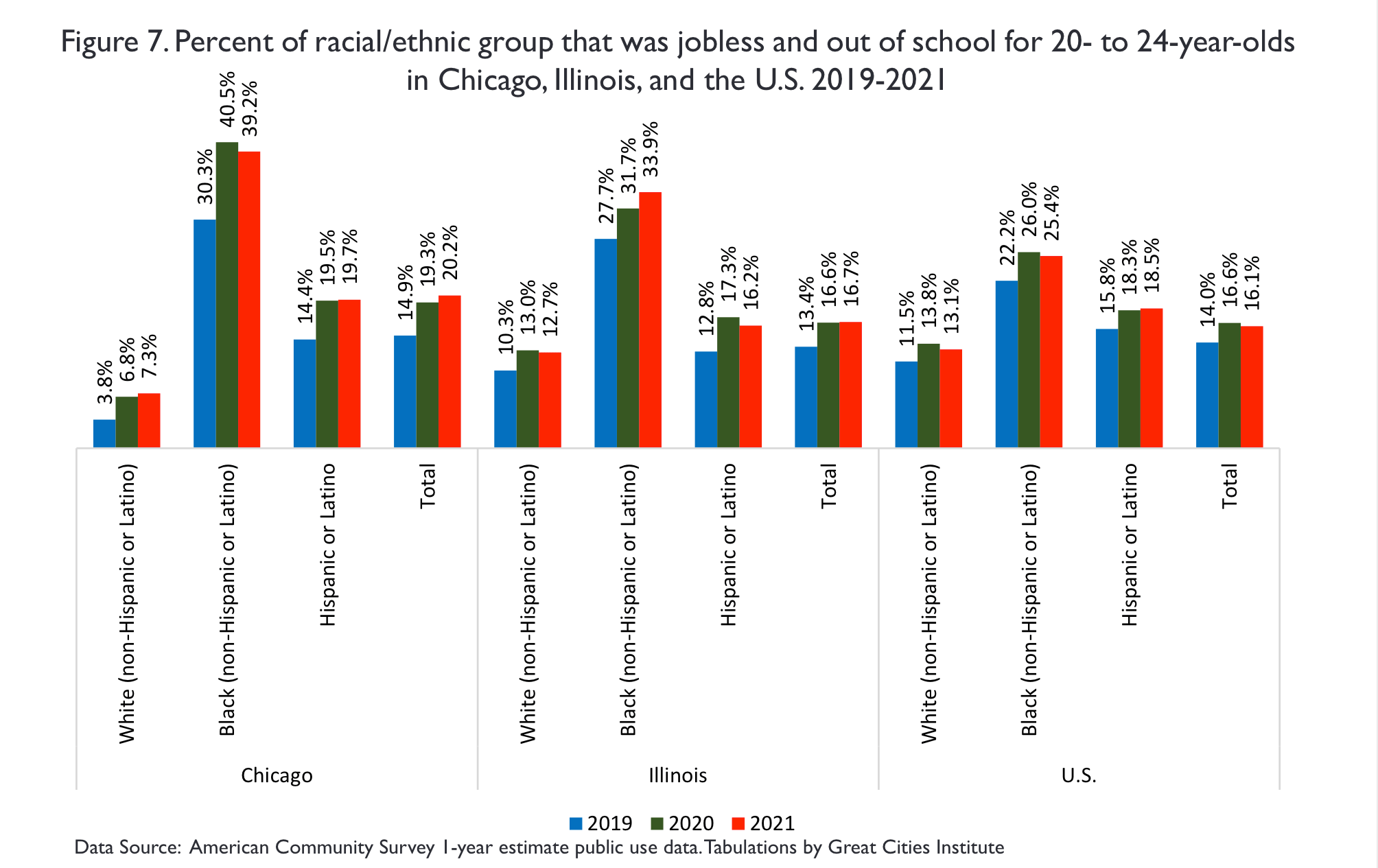More Black youth in Chicago are out of work, according to a new study by the University of Illinois at Chicago, and unemployment doubled during the pandemic for Black women, researchers found.
The UIC’s Great Cities Institute recently reported the jobless rate for Black youth between ages 20 to 24 was 57 percent in 2021, up from 44 percent in 2019. The report said overall joblessness among Black youth was higher than for any other demographic group during the pandemic.
And in 2021, the unemployment rate for Black women in the same age group soared to 59 percent, up from 32 percent in 2019.
The latest numbers fuel concern among community leaders who have been fighting to bring more jobs and resources to the South and West sides after many Black teenagers participated in a violent weekend downtown in April where cars were set on fire and people were arrested.
“It’s an urgent matter. We got tens of thousands of young people in the city and hundreds of thousands across the state ages 16-19 and 20-24 who do not have jobs. We saw what happened three weeks ago downtown,” Jack Wuest, executive director of Alternative Schools Network, said at a news conference on May 11.
Commissioned by the non-profit Alternative Schools Network, the report calls attention to a legislative bill in Springfield this year that aims to launch a $300 million statewide youth jobs program bill. Sponsored by State Representative Kam Buckner and State Senator Robert Peters, both Chicago Democrats, the bill would enlist community-based organizations across the state to help coordinate jobs for as many as 80,000 teens and young adults.
On his first day as Chicago Mayor, Brandon Johnson signed an executive order to push efforts boosting employment for the city’s youth.
Johnson’s youth employment executive order instructs the Office of Budget and Management to prepare an analysis of all resources in the City’s FY2023 budget available to fund youth employment and enrichment programs, including any state, county, or federal funds.
In addition, the executive order instructs the Deputy Mayor of Education and Health and Human Services to lead all city departments and agencies in identifying additional entry-level jobs suitable for young people. The order instructs the Mayor’s Office staff to coordinate year-round youth employment and enrichment activities among city sister agencies and city departments. The order includes collaboration with companies and non-profit organizations for summer internships, community service credit opportunities with Chicago Public Schools, and college credit opportunities with City Colleges of Chicago.
The order notes that Blacks and Latinos are among ethnic minorities employed at “much lower rates than white youth.”
The order also noted the shortcomings of One Summer Chicago, the summer jobs program that has previously employed “fewer than half of the young people that applied” for jobs.
According to the Department of Family and Support Services, One Summer Chicago reportedly employed 20,544 youth in 2022, down from 31,552 jobs in 2019. A Department spokesperson attributed the drop to former Mayor Rahm Emanuel inflating the program’s numbers by including jobs that weren’t actually part of One Summer Chicago.
“As your mayor, it’s my duty to take bold, immediate action to build a better, stronger, safer Chicago,” Johnson said in statement.
“My first executive orders as Mayor of Chicago instruct our government to boost youth employment so all young Chicagoans can reach their potential across our city, in addition to re-organizing the work of the Deputy Mayors to ensure that my cabinet reflects our top priorities for achieving community safety, supporting new arrivals, and protecting and expanding the right to organize. Together, we will collaborate to build a stronger city for all of us.”







